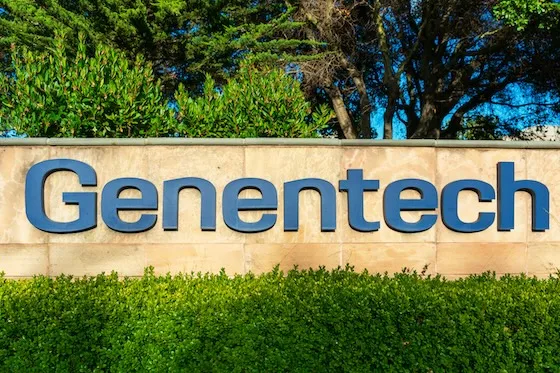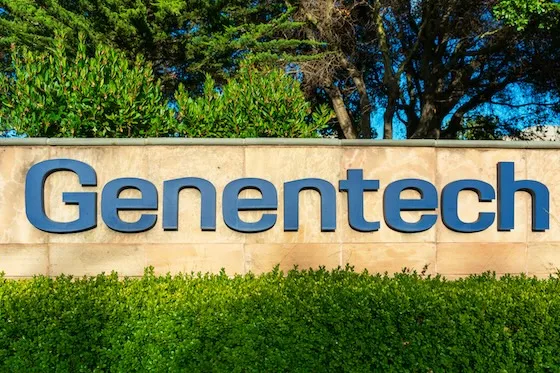
Genentech Receives FDA Complete Response Letter for Columvi Combination Therapy in Second-Line Diffuse Large B-Cell Lymphoma; Reaffirms Commitment to Advancing Columvi Across the Treatment Landscape
Genentech, a member of the Roche Group (SIX: RO, ROG; OTCQX: RHHBY), announced that the U.S. Food and Drug Administration (FDA) has issued a Complete Response Letter (CRL) regarding the company’s supplemental Biologics License Application (sBLA) for Columvi® (glofitamab-gxbm) in combination with gemcitabine and oxaliplatin (GemOx). The sBLA had sought approval for the combination as a second-line treatment option for adult patients with relapsed or refractory (R/R) diffuse large B-cell lymphoma (DLBCL) who are ineligible for autologous stem cell transplantation (ASCT).
The FDA’s CRL signifies that the agency has completed its review of the application but determined that the data provided do not sufficiently demonstrate a favorable benefit-risk profile to support the proposed new indication. Specifically, the FDA concluded that data from the Phase III STARGLO study did not provide adequate evidence to support the approval of the Columvi-GemOx regimen as a second-line treatment for this population within the U.S. healthcare setting.
Columvi Remains Available Under Accelerated Approval in Later-Line Setting
Despite this regulatory setback, Columvi retains its existing accelerated approval status in the U.S. for the treatment of adult patients with R/R DLBCL who have received two or more lines of systemic therapy. The therapy, a CD20xCD3 T-cell-engaging bispecific antibody, was granted accelerated approval in June 2023 based on promising clinical outcomes in the third-line or later setting. The STARGLO trial, which evaluated the combination of Columvi and GemOx in the second-line population, was initially intended to serve as a postmarketing confirmatory study to convert the existing accelerated approval into full FDA approval. With the FDA’s rejection of this dataset, that pathway is no longer viable.
In light of the CRL, Genentech has initiated discussions with the FDA to designate an alternative study—specifically, the ongoing Phase III SKYGLO trial—as the new confirmatory postmarketing requirement. SKYGLO is evaluating Columvi in combination with Polivy® (polatuzumab vedotin-piiq), Rituxan® (rituximab), cyclophosphamide, doxorubicin, and prednisone (collectively known as pR-CHP) in patients with previously untreated large B-cell lymphoma (LBCL), representing a potential first-line indication for Columvi.
Leadership Perspective: Confidence in Columvi’s Potential Remains Strong
Dr. Levi Garraway, M.D., Ph.D., Genentech’s Chief Medical Officer and Head of Global Product Development, expressed disappointment in the FDA’s decision but emphasized the company’s continued confidence in Columvi’s clinical utility.
“While Genentech we are disappointed with this outcome, we remain confident in the data supporting the value of Columvi for U.S. patients who have relapsed following initial treatment, and its key role as monotherapy in the third-line setting,” said Dr. Garraway. “We are committed to bringing Columvi to more people living with lymphoma and are actively exploring its potential in additional treatment settings, including as frontline therapy.”

Clinical Expert Stresses Global Need and Potential Impact
Dr. Jeremy Abramson, M.D., Director of the Jon and Jo Ann Hagler Center for Lymphoma at Massachusetts General Hospital Cancer Center and the principal investigator of the STARGLO study, emphasized the broader implications of the Columvi-GemOx combination, which is already in clinical use outside the U.S.
“For patients with this aggressive form of lymphoma, effective treatment after relapse is paramount,” Dr. Abramson noted. “The STARGLO study showed that Columvi-GemOx significantly improves overall survival and could have a positive impact for patients earlier in their treatment journey. This regimen is already approved in over 35 countries, which underscores the urgent need it addresses.”
Indeed, Genentech based on data from STARGLO, the Columvi-GemOx regimen has already gained regulatory approvals in more than 35 countries, including those in the European Union. The combination has also been incorporated into multiple clinical practice guidelines globally, including the U.S.-based National Comprehensive Cancer Network (NCCN) Clinical Practice Guidelines in Oncology for B-cell lymphomas. However, it’s important to note that the NCCN does not guarantee the efficacy or applicability of any specific therapeutic recommendation and disclaims liability regarding their use.
About the STARGLO Study and Data Highlights
The sBLA submitted to the FDA was primarily supported by the results from STARGLO, a pivotal Phase III randomized, open-label, multicenter study that evaluated the efficacy and safety of Columvi in combination with GemOx versus GemOx alone. The study enrolled adult patients with relapsed or refractory DLBCL who were not eligible for ASCT.
The primary endpoint of overall survival (OS) showed a statistically significant and clinically meaningful improvement in the Columvi-GemOx arm. Specifically, the combination demonstrated a 41% reduction in the risk of death compared to GemOx alone, with a hazard ratio (HR) of 0.59 (95% confidence interval [CI]: 0.40–0.89; p=0.011). These data were considered encouraging by many in the hematology community, and full study results were published in The Lancet. Additionally, updated two-year follow-up findings presented at the 61st Annual Meeting of the American Society of Clinical Oncology (ASCO) in May–June 2025 showed sustained improvements across primary and key secondary endpoints, including progression-free survival and overall response rates.
Despite these favorable clinical results, the FDA determined that the data did not meet its standards for approval in the second-line U.S. population, underscoring the regulatory body’s rigorous expectations for demonstrating benefit-risk balance, especially when alternative treatment options are available or under investigation.
In response to the CRL, Genentech is moving swiftly to pivot toward other clinical development pathways for Columvi. The company is now focusing on the ongoing Phase III SKYGLO study, which explores Columvi’s use in combination with a robust chemoimmunotherapy regimen in newly diagnosed LBCL patients. If successful, SKYGLO could not only support a new frontline indication but also serve as the new postmarketing commitment required to confirm Columvi’s existing accelerated approval.
This Genentech strategic redirection signals Genentech’s broader ambition to move Columvi earlier in the treatment continuum, including first-line settings where effective and less toxic treatment options are needed. The company is also pursuing studies evaluating Columvi in additional B-cell malignancies and combination regimens, reflecting a long-term vision to maximize the therapeutic potential of bispecific T-cell engagers.
Global Regulatory Landscape and Future Outlook
While Genentech the U.S. FDA’s decision represents a hurdle for the second-line expansion of Columvi within the domestic market, Genentech continues to advance global access. In addition to its combination use being authorized in over 35 countries, Columvi monotherapy has now been approved in more than 60 countries worldwide for the treatment of patients with R/R DLBCL after two or more prior therapies. Regulatory submissions are pending with additional health authorities, and ongoing engagement with international stakeholders is expected to continue throughout 2025.
The CRL does not impact the availability of Columvi for patients who qualify under its current U.S. label. Genentech has reaffirmed its commitment to ensuring uninterrupted access and exploring all viable regulatory pathways to expand Columvi’s reach to more patients in need.





